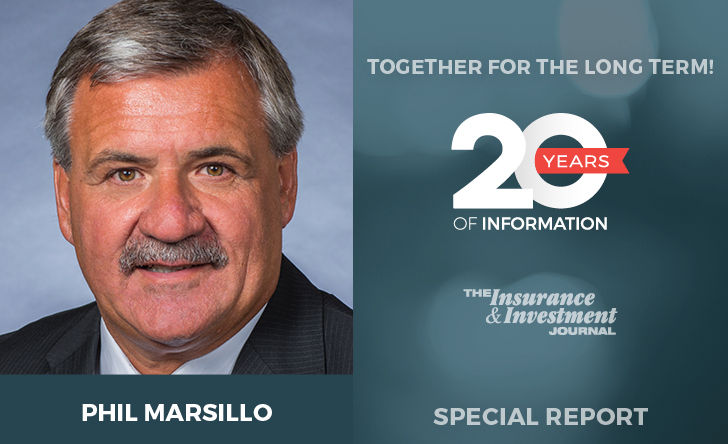Increased transparency regulations and even competition from online sources such as robo-advice are helping to make the financial services industry a more modern, adaptable source of information and products, says Phil Marsillo, senior vice president, individual distribution with Canada Life.
Marsillo says demands by consumers may be different today than when he first joined the industry in 1983, but adds that it’s the advice factor that will continue to draw potential clients to products whether they are insurance or mutual fund-related.
“I still believe the advice channel remains a very critical piece of the industry. It’s still a people business,” he says. “[Consumers] want reassurance – that what they’re doing is the right decision.”
Increased regulation has made many people in the industry uneasy, says Marsillo. He, on the other hand, believes it’s a tool that helps protect both the client and the advisor. His view is that advisors who do a good job for their clients simply have to prove, in writing, that they’ve followed all the rules by documenting their procedures and meetings.
Marsillo admits that the industry needs to do a better job of educating advisors who are being hit with new rules by outlining what’s expected of them when it comes to compliance. To that end, insurers like Canada Life, work with managing general agencies (MGAs) to ensure proper compliance is filtered down to financial advisors.
On the other hand, says Marsillo, advisors need to be able to change along with regulations. Take deferred sales charges (DSC) in the mutual fund industry, he suggests. There’s been so much pressure on removing DSC fees, that several dealers refuse to allow clients 65 years of age or older to purchase a DSC product. While some advisors may balk, the move has forced advisors to make the way they sell products more transparent.
“The world is changing,” says Marsillo. “Clients want more transparency, they want to know why they are in a certain product and whether there are options available,” he says. “I think [clients] are not going to compare us to how we did business five, 10 or 15 years ago – they’re going to compare us with what goes out in the real world today.”
The digital age
Part of that means moving to the digital age and making it easier for customers to do business with the companies.
For example, robo-advice, rather than hurting advisors, presents a new opportunity. He suggests advisors learn how to work with robo-advisors to initially reach the smaller client and then be there as the client accumulates more assets.
As the industry learns to adapt to changing technology, it must also find ways to attract younger advisors to the insurance fold, says Marsillo. Computers have long taken over from rate books and some younger advisors cringe at the thought of completing pages of applications.
“So I think we have to change how we do business – maybe the language we use in today’s world might not resonate with the younger generation. Maybe we need to recruit differently.”




